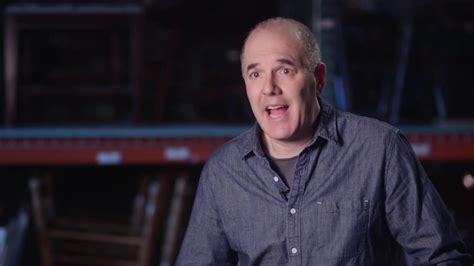A Quote by Christie Hefner
I've had this conversation with friends who have had challenging relationships with one or another parent. The only thing I can say is what I feel: The other person isn't going to change. That is who they are.
Quote Topics
Related Quotes
I had an incredibly full life with my imagination: I used to have all sorts of trolls and things; I had a wonderful world around my toys and invented people. I don't mean I had imaginary friends; I just had this big imagination thing going on. I didn't need any imaginary friends, because I had so much other stuff going on.
It is a very inconvenient habit of kittens (Alice had once made the remark) that, whatever you say to them, they always purr: "If they would only purr for 'yes,' and mew for 'no,; or any rule of that sort," she had said, "so that one could keep up a conversation! But how can you talk with a person if they always say the same thing?
When you're in a relationship, the dynamic seems to change over time. I only had two long-term girlfriends, but with both of them, as time went on, the sex tapered off in terms of frequency. We had sex less and less often. And talking with friends or whatever, hearing other people's stories, that seems to be the case with a lot of romantic relationships.
There have been times I thought that when I got a certain point in the story, a certain character was going to do a certain thing, only to get to that point and have the character make clear that he or she doesn't want to do that at all. That long phone conversation I thought the character was going to have? He hangs up the phone before the other person answers, and twenty pages of dialog I had half written in my head go out the window.
People who just wanted to make it work and knew it was going to be a real challenge. We were on the beach the first day and Donald [Sutherland] and I are playing best friends our whole lives. We met each other for 10 seconds the night before and we're sitting on a beach lining up a shot that we shoot a few minutes later, never having had a conversation with each other and then end up going skinny dipping in the Pacific Ocean buck-ass naked, not knowing who the other person is.
The thing video games had to learn was to write, which is not to let people choose their own stuff, but actually prescribe it. To say, "This character is not a blank canvas that you can project onto. I'm going to tell you what this character is like. And I'm going to tell you what happens to them. You're going to feel involved in other ways." Video games made the mistake of thinking everything had to be projectable, and this doesn't do that at all.
When I knew I was going to be able to write full time, I wondered, "What's going to happen to the relationships within my family?" Are they going to change? Is it going to be the kind of deal where you say, "I can't take this! Get me out of here! I can't stand these screaming kids!" The way it turned out was, I was able to change the diapers okay, after I stuck the pin through my fingers a few times. I had a dawning realization that children are not particularly hard to deal with.



































